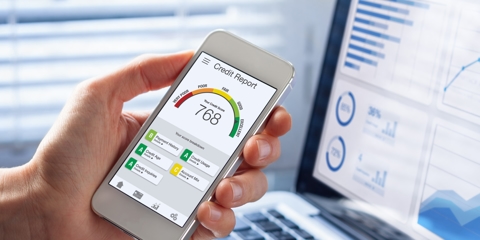When someone goes a long period of time without a job, bankruptcy can be the inevitable result. For most people, it’s hard to stay current on bills without any money coming in. Once debt starts to pile up, it can be hard to get out of it, which can lead to a bankruptcy. Under federal bankruptcy law, there is no requirement that a debtor must be employed. However, being unemployed can affect the success of your bankruptcy filing in some cases.
Individuals typically file a Chapter 7 bankruptcy or a Chapter 13 bankruptcy. In a Chapter 7 bankruptcy, the unsecured debts such as credit cards and medical bills are wiped out. In most situations, creditors do not receive anything because there is no property that can be taken and sold. Because of the nature of a Chapter 7 bankruptcy, debtors have to pass a means test to be able to qualify for a Chapter 7. This means that your income will be compared against the state median income. If you have too much income, you may be disqualified unless you also have very high allowable expenses. If you are unemployed, you will obviously be below the income limitations, even if you are receiving unemployment compensation.
In a Chapter 13 bankruptcy, debtors pay back either a portion or all of their debts through a repayment plan, which typically lasts from three to five years. Chapter 13 bankruptcies also allow debtors to catch up on unpaid mortgages, pay down car loans, or pay back debts that cannot be discharged like alimony or student loans. These benefits are not available to debtors who file a Chapter 7.
However, in order to be able to qualify for a Chapter 13 bankruptcy in order to take advantage of the additional benefits offered, a Chapter 13 is normally only for debtors with a regular income. Individuals who are unemployed can still file for a Chapter 13 bankruptcy. Typically, even people who are unemployed have some money coming in, such as unemployment, child support, or social security.
If you can prove that you have enough money coming in from other sources, you can still file a Chapter 13 bankruptcy, even if you do not have a regular income. If you have no income coming in, or not enough to be able to pay the payments required under your plan, the court will dismiss your case. If you do find a job during the bankruptcy process, you may be required to notify the trustee and provide documentation to the court on your income.
If you believe you are in over your head with debt and that bankruptcy may be a good option for you, call the Atlanta bankruptcy attorneys at Holston & Huntley. Call us today at (404) 620-3337consultations are free and you are under no obligation to use our services. We serve Metro Atlanta Georgia as well as Birmingham Alabama including surrounding areas.





